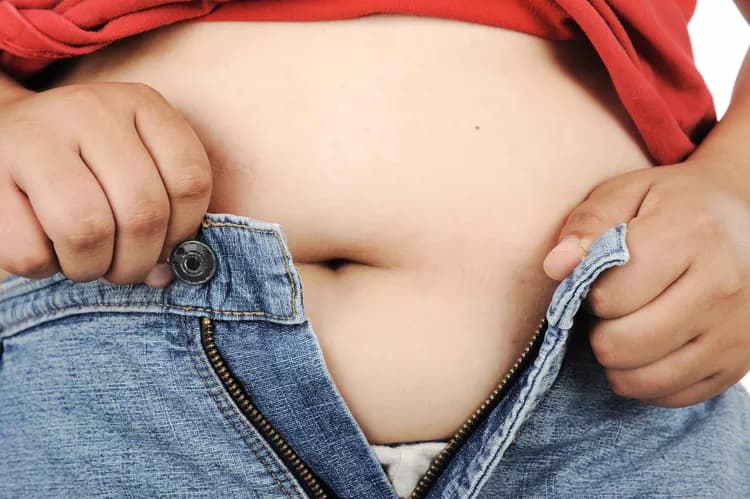
Does Gender Expression Impact Weight? New Research Ties Masculinity To Higher BMI For Young People
The first long-term research study of its kind ties masculine gender expression, or how much an individual conforms to masculine norms, to higher Body Mass Index (BMI) in youth. In particular, researchers led by S. Bryn Austin, ScD, from Boston Children's Hospital, found that societal pressures on young males to be larger than other boys their age may place them at higher risk for an increase in BMI. The research is published in the February issue of Obesity, the scientific journal of The Obesity Society.
"Because thinness is not consistent with dominant cultural standards of masculinity, young people who conform to masculine norms may be more likely than other youth to engage in unhealthy behaviors such as high-calorie food consumption, overeating and sedentary behaviors," explains Dr. Austin. "While females who identify with being more masculine are at risk for a higher BMI than their more feminine peers, males who identify as being masculine face a larger challenge: both higher BMI and more rapid BMI gains."
To conduct the study, the researchers examined data from the Growing Up Today Study (GUTS), which collected survey data over a 15-year period from nearly 10,000 young people, 10 to 23 years, living across the United States. The researchers found that in females, greater conformity to masculine norms was linked with a higher BMI at age 17 years (BMI 23.3 kg/m2 for more masculine females vs. BMI 21.3 kg/m2 for more feminine females), but did not lead to more rapid gains in BMI over time. For males, greater conformity with masculine norms was linked with higher BMI (BMI 23.7 kg/m2 for more masculine males vs. BMI 22.8 kg/m2 for more feminine males at age 17 years). The study found that by age 23 years, the most gender conforming males had a mean BMI fully two BMI units higher than gender nonconforming males.
The researchers also looked at the data for sexual minorities (e.g. lesbians, gay men, bisexuals) compared to their heterosexual peers and found that sexual minority females on average had higher BMIs, whereas sexual minority males had lower BMIs. These results may be due in part to gender non-conforming related to identification with masculinity.
According to the paper, "In U.S. society, youth are inundated with messages from media, peers and family about cultural expectations of gender expression for girls and women, boys and men. Evidence is accumulating that these messages carry with them health risks in myriad domains."
"Clearly, there are powerful societal influences at play that tie into youth's weight-related behaviors and ultimately their health," says Dana Rofey, PhD, a spokesperson for The Obesity Society and Assistant Professor at the University of Pittsburgh School of Medicine. "This valuable understanding of gender norms can help researchers, clinicians and policymakers design obesity interventions that target gender expression, which may pose barriers to a healthy weight. For providers especially, it may be helpful to talk with young people about the kinds of gender-related pressures they are experiencing that could have a negative impact on weight and health."
According to Dr. Rofey, future research on gender expression should examine differences between how young people specify their own gender expression versus how they think others define their gender expression.
"As gender is performative (e.g., putting on makeup) and relational (e.g., dressing more feminine compared to peers), attention to contexts and settings in which youth express themselves as more masculine or more feminine is needed," explains Dr. Rofey in a commentary* accompanying the study.
Limitations to the study include that a single measure was used to assess gender expression, and that the GUTS data is neither racially/ethnically or economically diverse, nor is it representative of the U.S. population. Additionally, BMI can sometimes increase as a result of muscle mass and is not always necessarily tied to an unhealthy weight.
The above post is reprinted from materials provided by Obesity Society.Note: Materials may be edited for content and length.
Disclaimer: DoveMed is not responsible for the adapted accuracy of news releases posted to DoveMed by contributing universities and institutions.
Primary Resource:
Bryn Austin, S., Ziyadeh, N. J., Calzo, J. P., Sonneville, K. R., Kennedy, G. A., Roberts, A. L., ... & Scherer, E. A. (2016). Gender expression associated with BMI in a prospective cohort study of US adolescents. Obesity, 24(2), 506-515.
Related Articles
Test Your Knowledge
Asked by users
Related Centers
Related Specialties
Related Physicians
Related Procedures
Related Resources
Join DoveHubs
and connect with fellow professionals

0 Comments
Please log in to post a comment.